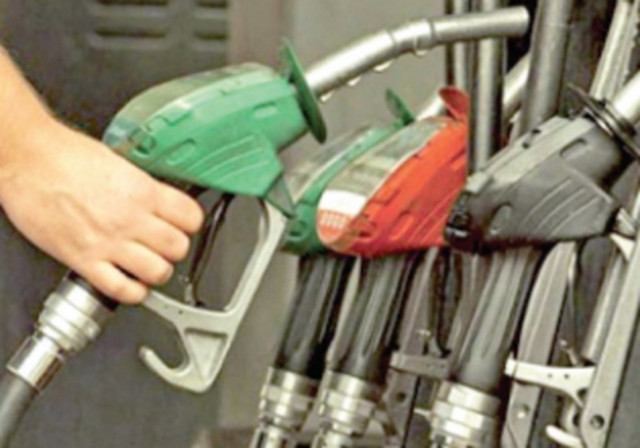Govt now eyes Rs920b revenue under petroleum levy
Says consumption of petrol, diesel fell less than expected

Pakistan has made a commitment with the International Monetary Fund (IMF) to further increase the petroleum levy collection to a record Rs920 billion in this fiscal year amid its failure to fully recover the Gas Infrastructure Development Cess (GIDC) from powerful industries.
Sources in the finance ministry told The Express Tribune that during the recently concluded review talks, the government had assured the IMF to further increase the petroleum levy annual target of Rs869 billion by another Rs50 billion. They said that the higher levy collection is being assured to compensate for the loss of revenue from other non-tax revenue sources.
The government charges Rs60 per litre petroleum tax on every litre of petrol and diesel. It has budgeted Rs869 billion collection under this head but has now committed to increase it close to Rs920 billion.
The petroleum levy has become the single largest source of tax collection for the authorities – a sum that automatically falls in its lap due to the nature of the collection.
During the first quarter, the government had collected Rs222 billion under the head of petroleum levy, which was 367% higher than the same quarter of last year.
When contacted, finance ministry spokesperson Qamar Abbasi said that the government did not make any commitment with the IMF to further increase the petroleum levy rates that would remain unchanged at Rs60 per litre.
The spokesperson added that the consumption of the petroleum products fell less than expected and as a result, the annual collection would remain higher than the budgeted figure of Rs869 billion.
Even if the levy was exceeding the targets, the government has not opted to lower the fuel prices that are remaining close to historically high levels amid continuous double-digit inflation.
The Sensitive Price Index –the basket comprising goods mostly used by lower income groups –surged nearly 10% in just one week due to a 480% increase in gas prices for the poorest households of the country.
Where the finance ministry has committed to increase the levy collection by another Rs50 billion, the revenue collection target from the GIDC has been cut by Rs10 billion to Rs30 billion, the sources added.
The GIDC had been struck down by the apex court. But the companies had collected Rs416 billion as of Dec 2018, which they did not deposit in the national kitty.
In Sept 2019, former prime minister Imran Khan had promulgated a Presidential Ordinance to waive off half of the Rs416 billion. After the media criticism, the PTI government had withdrawn the controversial ordinance and decided to have the matter of the Rs416.3 billion outstanding dues settled through court.
“The ordinance has been issued with a view to recover 50% of the stuck revenue by way of an out-of-court settlement after consultation with the industry,” a statement issued by the PM Office in Sept 2019 read.
The Supreme Court annulled the GIDC statute. The federal government's review petition was also dismissed by the apex court.
The sources said that since 2019, only Rs80 billion of Rs416 billion was recovered. About Rs337 billion balance was still pending of which Rs40 billion had earlier been estimated to be recovered. But this target is now reduced by further Rs10 billion.
In 2019, about Rs138 billion dues were outstanding against the fertiliser companies. At that time, total dues against the textile sector were Rs42.5 billion. The liabilities against captive power plants stood at Rs91.4 billion in 2019. The CNG sector owed Rs80 billion.
The finance ministry spokesperson said that the collection of the GIDC arrears was affected due to various court cases.
The sources said that as against earlier estimates of Rs2.1 trillion collections under the head of non-tax revenues, the target has now been slashed by Rs97 billion despite an increase in the petroleum levy collection.
They said that FBR’s tax collection target remained unchanged at Rs9.415 trillion after the review talks. But within the overall target of Rs9.415 trillion, the income tax collection target has been further increased by Rs346 billion to compensate the shortfall against the other three taxes.
The income tax collection’s revised target is Rs4.23 trillion, which is equal to 45% of the total collection. The sales tax annual target has been slashed by Rs196 billion, customs duties by Rs117 billion and federal excise duty collection target has been reduced by Rs34 billion, said the sources.
The FBR has informed the IMF that due to import compression, its collection at the import stage would see a dip, which would be offset against the enhanced revenue collection at the domestic stage.


1724912122-0/Untitled-design-(1)1724912122-0-208x130.webp)
















COMMENTS
Comments are moderated and generally will be posted if they are on-topic and not abusive.
For more information, please see our Comments FAQ